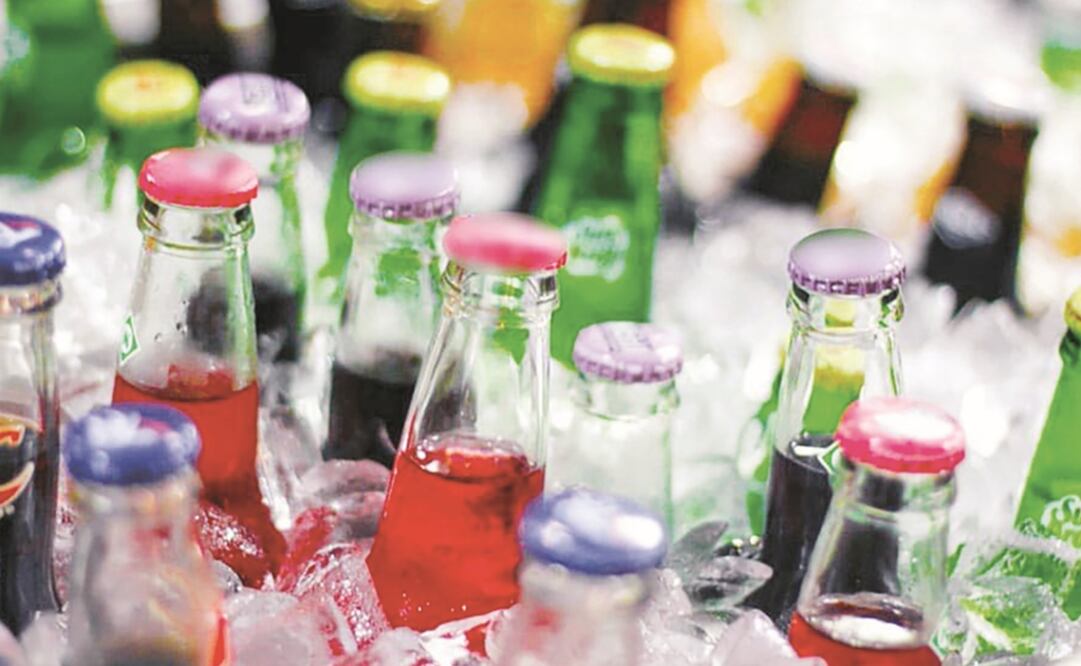Más Información

Extorsión, abuso sexual, drogas y ciberacoso, los delitos latentes para infancias; delincuentes usan videojuegos

Hijos de presuntos capos mexicanos estuvieron en escuela de élite de EU: Departamento de Tesoro; pagaron hasta 102 mil 235 dólares por año
Oaxaca
became the first state to pass a bill against selling junk food to children . This new law aims to eradicate obesity among Mexican children, it was proposed by the ruling-party Morena.
The bill was backed by Morena and the PT, while the PRI opposed it.
Since President Andrés Manuel López Obrador took office, he encouraged families not to drink soda and eat junk food, and instead consume fruits and healthy food.
Amid the COVID-19 pandemic, health authorities urged people to transition into healthy diets and habits because illnesses such as diabetes and high blood pressure worsen COVID-19.
Recommended: Raising cigarette taxes won't reduce smoking
According to the lawmaker who proposed the bill, it will force parents to decide whether or not their children should eat these products, and said it is similar to banning children from buying alcohol and cigarettes.
After the industry said the new law will affect businesses, the lawmaker said it is not a punishment and accused business owners of misinforming small retailers.
In an interview with EL UNIVERSAL, the lawmaker said “We have to eradicate the privileges for a few to prioritize children’s health. There can’t be room economic interests over health .”
Before the Oaxaca Congress passed the bill, around 30 merchants protested outside the government building and asked lawmakers not to approve the new law because they consider it will affect their sales, and lead to unemployment.
On the other hand, the National Alliance of Small Retailers (ANPEC) called on lawmakers to halt the initiative.
Nevertheless, several NGOs like UNICEF , the United Nations, and 73 Mexican organizations backed the bill.
Dr. Hugo López-Gatell, the Deputy Health Minister, supported the bill and said it was positive. During a news conference, Dr. López-Gatell said, “We read the text, we thought it was really good. We consider that it is a very accurate initiative (…), to reform the Law for the Rights of Children and Teenagers to add a section that prohibits selling, gifting, or distributing unhealthy food. We think it is a really good initiative.”
The bill banning children from buying junk food in Oaxaca entered into force just over a month after being approved.
Recommended: Processed food consumption continues to rise
The junk food industry reacts
After the local Oaxaca Congress approve a bill banning children from buying unhealthy food and beverages, national and state commerce chambers said the bill will negatively impact the agriculture industry, artisans, and small-sized enterprises.
The Coparmex, Canacintra, the National Chamber of the Restaurant Industry and Seasoned Food, the National Chamber of the Bread Industry, the Chocolate Association, and the National Alliance of Small Retailers said the new bill will affect the entire industry.
Other commerce chambers representing soda companies and conveniences stores also voiced their disagreement.
In a statement, they said that they are in favor of the health and well-being of Oaxaca residents and that they don’t sell junk food at schools: “This decision will have a huge economic impact on the value chain of the food industry.”
They added that the decree goes beyond junk food and plans to ban the sale of “Oaxacan chocolate, granola, yogurt, and cereal in stores, restaurants, and supermarkets.”
The industry argues the bill won’t solve the obesity problem, it will also encourage the informal sector, and impact thousands of families who depend on the sale, distribution, and commercialization of junk food.
How comorbidities sway COVID-19 severity in Mexico
In Mexico, 73% of those who died of COVID-19 have at least one comorbidity and other conditions such as COPD.
There is an 11% fatality rate, according to the latest calculations by the federal government. Although health authorities explained that the number is overestimated since the real number of cases in the country is still unknown, they found that patients who present certain chronic diseases triple the risk of dying.
A clear example is shown in the case of COPD: out of the 1,558 patients with COVID-19 and that condition died, according to the information published by the Health Ministry (SSA) on May 27.
With 15 million Mexicans who suffer from hypertension and where diabetes is considered as the second cause of death at a national level, with 70% of the population with obesity and where 20,000 Mexicans died every year from COPD, experts stress that these people should have priority to be tested. “We’re not saying to test 127 million Mexicans, but to test those sectors that need to be prioritized, such as elderly people or those with some kind of diseases… there should be tests for them,” asserts Laurie Ann Ximénez, head of the Molecular Laboratory of the National Autonomous University of Mexico and doctor in Microbiology by Harvard.
gm
Noticias según tus intereses
[Publicidad]
[Publicidad]












